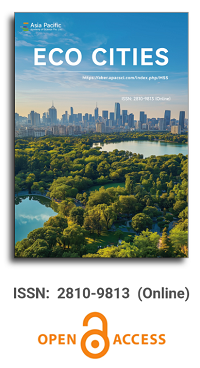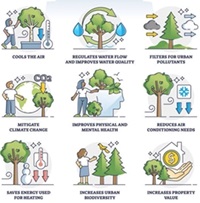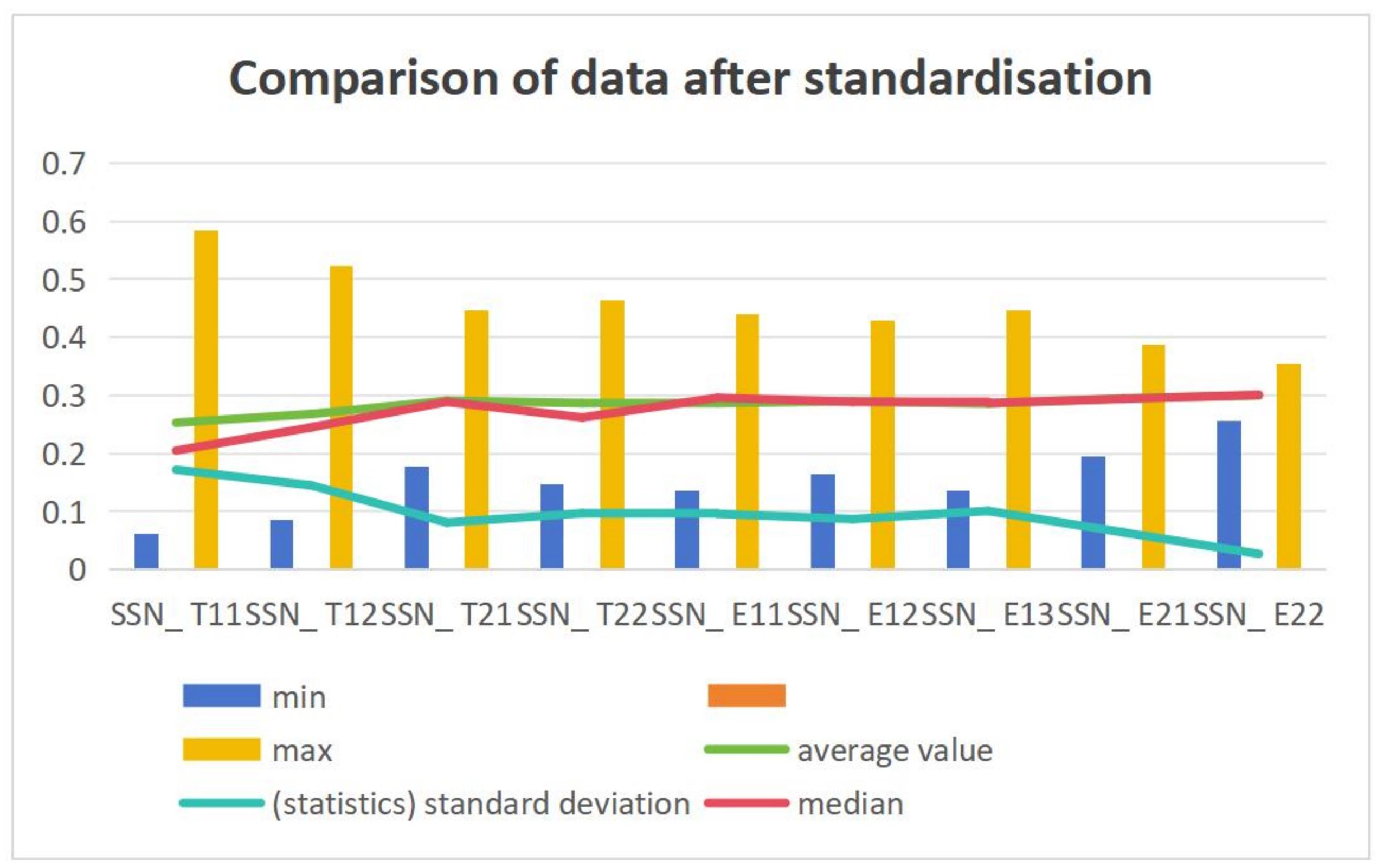


Looking forward to a sustainable city through the management mode of Construction and Demolition Waste (CDW): A case study of Barranquilla
Vol 2, Issue 1, 2021
Download PDF
Abstract
Background: The resulting large amount of construction and demolition waste (CDW) has become a global problem. To this end, Colombia’s legislation seeks to guide its proper management and promote its transformation and reuse. Methodology: Based on the analysis of the national and local legislation of CDW management frontier cities in Colombia, this study puts forward an alternative to the formulation of a comprehensive management plan. Based on this analysis, the conditions and characteristics of medium-sized cities such as Barranquilla are studied and analyzed in order to provide a comprehensive alternative for the management and treatment of this kind of waste. Result: The prevention, storage, collection, transportation, use, and final disposal aspects that should be considered in the CDW integrated management plan most suitable for Barranquilla City are determined. According to these special characteristics and conditions, a scheme of treatment plants is proposed. Conclusion: In view of the rapid development of Barranquilla in recent years, Barranquilla needs to quickly adjust its CDW management mode. The city recognizes that the separation of source and use is at the core of the model needed to achieve sustainable management processes. In addition, the shortcomings of the current management system are found, and combined with the application of the linear economic model, a management model based on the principle of circular economy is proposed.
Keywords
References
- Castaño J, Rodriguez R, Lasso LA, et al. Waste management from construction and demolition (RCD) in Bogota: Prospects and limitations. Tecnura 2013; 17(38): 121–129.
- Del Río M, Izquierdo P, Salto I, et al. Legal aspects about construction and demolition waste (CDW) in Spain. The Autonomus Region of Madrid. Informes de La Construcción 2010; 62(517): 81–86.
- Morán del Pozo JM, Juan Valdés A, Aguado PJ, et al. State of the art on construction and demolition wastes management: Limitations. Informes de La Construcción 2011; 63(521): 89–95.
- Robayo R, Mattey P, Silva Y, et al. Construction and demolition wastes: Analysis of its management and reuse in Cali. Tecnura 2015; 19(44): 157–170.
- Xargay H, Ripani M, Cagiano A, et al. Using recycled materials in cementitious composites. Tecnura 2019; 23(60): 38–51.
- Programa de las Naciones Unidas [Internet] (Spanish) [United Nations Program]. Objetivos del desarrollo sostenible; 2018. Available from: http://www.undp.org/content/undp/es/home/sustainable-development-goals.html.
- Ramirez JMC. Colección de tesis digitales, Universidad de las Américas Puebla, Guía para el manejo de residuos sólidos generados en la industria de la construcción (Spanish) [Digital Thesis Collection, Universidad de las Américas Puebla, Guide for the management of solid waste generated in the construction industry] [Master’s thesis]. México: Universidad de las Américas Puebla; 2007. Available from: http://catarina.udlap.mx/u_dl_a/tales/docume ntos/mgc/cortina_r_jm/indice.html.
- Pacheco C, Sanchez E, Fuentes L, et al. Construction demolition waste (CDW), a perspective of achievement for the city of Barranquilla since its management model. Revista Ingeniería y Desarrollo 2017; 35(2): 533–555.
- Decreto 2811 de 1974 (Spanish) [Decree 2811 of 1974] [Internet]. 1974 Dec 18 (Colombia). Available from: https://www.funcionpublica.gov.co/eva/gestor normativo/norma_pdf.php?i=1551.
- Ministerio Del Medio Ambiente Resolución 541 (Spanish) [Ministry of the Environment Resolution 541] [Internet]. 1994 Dec 14 (Colombia). Available from: https://www.anla.gov.co/documentos/normati va/resoluciones/res_0541_141294.pdf.
- Ley 142 de 1994 (Spanish) [Law 142 of 1994] [Internet]. 1994 Jul 11 (Colombia). Available from: https://www.funcionpublica.gov.co/eva/gestornormativo/norma.php?i=2752.
- Decreto 1505 de 2003 (Spanish) [Decree 1505 of 2003] [Internet]. 2003 Jun 6 (Colombia). Available from: https://www.icbf.gov.co/cargues/avance/docs/ decreto_1505_2003.htm.
- Ley 1259 de 2008 (Spanish) [Law 1259 of 2008] [Internet]. 2008 Dec 19 (Colombia). Available from: https://justiciaambientalcolombia.org/wp-content/uploads/2012/10/ley-1259-de-2008.pdf.
- Decreto 1076 de 2015 (Spanish) [Decree 1076 of 2015] [Internet]. 2015 May 26 (Colombia). Available from: https://www.funcionpublica.gov.co/eva/ gestornormativo/norma.php?i=78153.
- Decreto 190 de 2004 (Spanish) [Decree 190 of 2004] [Internet]. 2004 Jun 22 (Colombia). Available from: https://www.alcaldiabogota.gov.co/sisjur/normas/Norma1.jsp?i=13935.
- Decreto 312 de 2006 (Spanish) [Decree 312 of 2006] [Internet]. 2006 Aug 15 (Colombia). Available from: https://www.uaesp.gov.co/images/DECRETO_312_2006.pdf.
- Decreto 620 de 2007 (Spanish) [Decree 620 of 2007] [Internet]. 2007 Dec 28 (Colombia). Available from: https://www.leyex.info/leyes/Decretosdp620de2007.htm.
- Resolución 2397 de 2011 (Spanish) [Resolution 2397 of 2011] [Internet]. 2011 Apr 25 (Colombia). Available from: https://www.mincit.gov.co/ministe rio/normograma-sig/procesos-de-apoyo/gestion-de-recursos-fisicos/resoluciones/resolucion-2397-de-20 11.aspx.
- Resolución 1115 de 2012 (Spanish) [Resolution 1115 of 2012] [Internet]. 2012 Sept 26 (Bogota). Available from: https://www.alcaldiabogota.gov.co/s isjur/normas/Norma1.jsp?i=49822
- Resolución 715 (Spanish) [Resolution 715] [Internet]. 2013 May 30 (Colombia). Available from: http://www.FVSGovernment.CO/Transparency/Framework-Legal/Normativi-DAD/Resolution-715-20 13.
- Decreto No. 151 (Spanish) [Decree No.151] [Internet]. 2002 Feb 20 (Colombia). Available from: https://www.medellin.gov.co/irj/go/km/docs/pccdesign/SubportaldelCiudadano_2/PlandeDesarrollo_0_0_0/Shared%20Content/pdf%20codigo%20buen%20comienzo/DECRETO%20No151.pdf
- Manual de gestión socio-ambiental para obras de construcción (Spanish) [Socio-environmental management manual for construction sites] [Internet] Med2llin: Secretaría del Medio Ambiente, E.P. de M.; 2010. Available from: http://www.colmayor. edu.co/uploaded_files/images/archivos/normograma/manuales/Manualambientalparaprocesosconstructivos.pdf.
- Alcaldía municipal de Medellín. Guía de manejo socio-ambiental para la construcción de obras de infraestructura pública (Spanish) [Guidelines for social and environmental management of public infrastructure construction]. 2013.
- Decreto No. 0860 (Spanish) [Decree No. 0860] [Internet]. 2012 Sept 3 (Colombia). Available from: http://www.barranquilla.gov.co/publicaciones/doc_download/1649-gaceta-no-373.
- Resolución 1011 Economía Circular (Spanish) [Resolution 1011 Circular Economy] [Internet]. Barranquilla: Departamento Técnico Administrativo del Medio Ambiente Barranquilla–DAMAB; 2018 [2018 June 28]. Available from: https://economiacir cular.org/wp/?page_id=62.
- Resolución 1482 (Spanish) [Resolution 1482] [Internet]. Barranquilla: Barranquilla verde, A. de B; 2017. Available from: http://barranquillaverde.gov. co/planeacion-gestion-y-control/normatividad.
- Pacheco Bastos C, Paz C. Guía para el manejo integral de los Residuos de Construcción y Demolición en la ciudad de Barranquilla (Spanish) [Guide for integrated management of construction and demolition waste in Barranquilla city]. Barranquilla: Northern University Press; 2019.
- Decreto No. 2981 (Spanish) [Decree No. 2981] [Internet]. 2013 Dec 20 (Colombia). Avaialble from: http://wsp.presidencia.gov.co/Normativa/Decretos/2013/Documents/DICIEMBRE/20/DECRETO298DEL20DEDICIEMBREDE2013.pdf.
Supporting Agencies
Copyright (c) 2021 Carlos Albeiro Pacheco Bustos, Edgar Humberto Sánchez Cotte, Carolina Páez
License URL: https://creativecommons.org/licenses/by/4.0

This site is licensed under a Creative Commons Attribution 4.0 International License (CC BY 4.0).

Chinese Academy of Sciences, China
Indexing & Archiving
Asia Pacific Academy of Science Pte. Ltd. (APACSCI) specializes in international journal publishing. APACSCI adopts the open access publishing model and provides an important communication bridge for academic groups whose interest fields include engineering, technology, medicine, computer, mathematics, agriculture and forestry, and environment.



.jpg)

.jpg)



